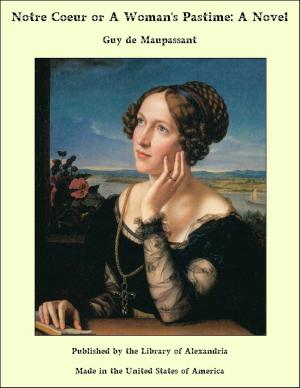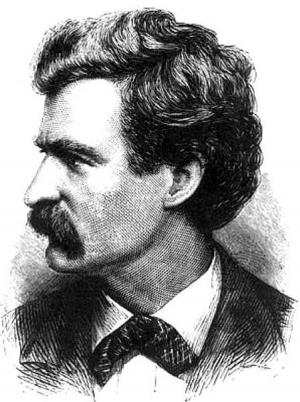North, South and Over the Sea
Nonfiction, Religion & Spirituality, New Age, History, Fiction & Literature| Author: | M. E. Francis | ISBN: | 9781465553263 |
| Publisher: | Library of Alexandria | Publication: | March 8, 2015 |
| Imprint: | Language: | English |
| Author: | M. E. Francis |
| ISBN: | 9781465553263 |
| Publisher: | Library of Alexandria |
| Publication: | March 8, 2015 |
| Imprint: | |
| Language: | English |
GOLDEN SALLY The long warm day was drawing to its close; over the sandhills yonder the sun was sinking in a great glory of scarlet and purple and gold. The air was warm still, and yet full of those myriad indescribable essences that betoken the falling of the dew; and mingling with, yet without dominating them, was the sweet penetrating odour of newly-cut hay. John Dickinson walked moodily along the lane that led first to his uncle's wheat-field, and then to the sandhills. He was a tall, strapping young fellow, broad of shoulder and sturdy of limb, with nevertheless something about him which betokened that he was not country bred. His face was not brown enough, his hands were not rough enough, the shirt sleeves, rolled up above his elbow, were not only cleaner than those of the ordinary rustic after a hard day, but displayed arms whereof the tell-tale whiteness proclaimed that they were little used to such exposure. These arms ached sorely now; all day long had John been assisting in "carrying," and the hours spent in forking the hay from the ground to the cart had put his new-found ardour for a country life to a severe test. John had been born and brought up in Liverpool, having since he left school acted as assistant in his father's shop. But on the latter's death, his affairs were found to be so hopelessly involved that it was impossible for his family to carry on the business. Mrs. Wilson and her daughters had obtained employment in "town," and John had announced his intention of taking to farming. Having been more or less master in his father's small establishment he could not brook the idea of accepting a subordinate post in the same way of business; and, indeed, as his mother's brother, burly old Richard Waring of Thornleigh, had offered to take him into his household and teach him his work, there seemed to be no reason why he should not adopt the career which was more to his mind. John had frequently made expeditions into the country before, and had spent many pleasant hours in the company of his aunt and uncle, and their buxom daughter Jinny; but he found a vast difference between these pleasure excursions and the steady routine to which he was now subjected. All the household were abed at nine, an arrangement to which John objected. As his aunt opined that it was "a sin an' a shame to burn good lamps i' summer time when days was long enough for onybody as was reasonable," he bought a supply of candles out of his own meagre store, and, being fond of reading, spent an hour or two with book or paper before retiring to rest. But the worst of this arrangement was that when, as it appeared to him, he had just settled comfortably to his first sleep, it was time to be astir again. His uncle thumped at his door, his aunt, from the bottom of the stairs, called out shrilly that if he wanted any breakfast he had best make haste, for she was "goin' to side the things in a twothree minutes." Jinny made sarcastic comments on his tardy appearance, and laughed at his heavy eyes. That was the worst of it—Jinny was always laughing at him; she "made little" of him on every possible occasion. His "town" speech, his "finicky" ways, his state of collapse at the end of the day, his awkwardness in handling unaccustomed tools, were to her never-failing sources of amusement. John set his teeth and made no sign of being wounded or annoyed, the sturdy spirit inherited from his mother's people forbidding him to cry out when he was hurt; but his spirits were at a low ebb, and to-day he had walked forth after tea with a heart as sore and heavy as those over-strained arms of his. Jinny had come out to the field with the "drinkin's," and her face looked so bewitching under the sun-bonnet, and her waist so tempting and trim beneath the crisp folds of her clean bed-gown, that John had made bold in cousinly fashion to encircle it with his arm, whereupon she had freed herself with an impatient twirl, remarking that she didn't want no counter-jumpers to be measurin' of her—a sally which had been regarded as exquisitely humorous by the bystanders. John's cheeks burned as he thought of it
GOLDEN SALLY The long warm day was drawing to its close; over the sandhills yonder the sun was sinking in a great glory of scarlet and purple and gold. The air was warm still, and yet full of those myriad indescribable essences that betoken the falling of the dew; and mingling with, yet without dominating them, was the sweet penetrating odour of newly-cut hay. John Dickinson walked moodily along the lane that led first to his uncle's wheat-field, and then to the sandhills. He was a tall, strapping young fellow, broad of shoulder and sturdy of limb, with nevertheless something about him which betokened that he was not country bred. His face was not brown enough, his hands were not rough enough, the shirt sleeves, rolled up above his elbow, were not only cleaner than those of the ordinary rustic after a hard day, but displayed arms whereof the tell-tale whiteness proclaimed that they were little used to such exposure. These arms ached sorely now; all day long had John been assisting in "carrying," and the hours spent in forking the hay from the ground to the cart had put his new-found ardour for a country life to a severe test. John had been born and brought up in Liverpool, having since he left school acted as assistant in his father's shop. But on the latter's death, his affairs were found to be so hopelessly involved that it was impossible for his family to carry on the business. Mrs. Wilson and her daughters had obtained employment in "town," and John had announced his intention of taking to farming. Having been more or less master in his father's small establishment he could not brook the idea of accepting a subordinate post in the same way of business; and, indeed, as his mother's brother, burly old Richard Waring of Thornleigh, had offered to take him into his household and teach him his work, there seemed to be no reason why he should not adopt the career which was more to his mind. John had frequently made expeditions into the country before, and had spent many pleasant hours in the company of his aunt and uncle, and their buxom daughter Jinny; but he found a vast difference between these pleasure excursions and the steady routine to which he was now subjected. All the household were abed at nine, an arrangement to which John objected. As his aunt opined that it was "a sin an' a shame to burn good lamps i' summer time when days was long enough for onybody as was reasonable," he bought a supply of candles out of his own meagre store, and, being fond of reading, spent an hour or two with book or paper before retiring to rest. But the worst of this arrangement was that when, as it appeared to him, he had just settled comfortably to his first sleep, it was time to be astir again. His uncle thumped at his door, his aunt, from the bottom of the stairs, called out shrilly that if he wanted any breakfast he had best make haste, for she was "goin' to side the things in a twothree minutes." Jinny made sarcastic comments on his tardy appearance, and laughed at his heavy eyes. That was the worst of it—Jinny was always laughing at him; she "made little" of him on every possible occasion. His "town" speech, his "finicky" ways, his state of collapse at the end of the day, his awkwardness in handling unaccustomed tools, were to her never-failing sources of amusement. John set his teeth and made no sign of being wounded or annoyed, the sturdy spirit inherited from his mother's people forbidding him to cry out when he was hurt; but his spirits were at a low ebb, and to-day he had walked forth after tea with a heart as sore and heavy as those over-strained arms of his. Jinny had come out to the field with the "drinkin's," and her face looked so bewitching under the sun-bonnet, and her waist so tempting and trim beneath the crisp folds of her clean bed-gown, that John had made bold in cousinly fashion to encircle it with his arm, whereupon she had freed herself with an impatient twirl, remarking that she didn't want no counter-jumpers to be measurin' of her—a sally which had been regarded as exquisitely humorous by the bystanders. John's cheeks burned as he thought of it















